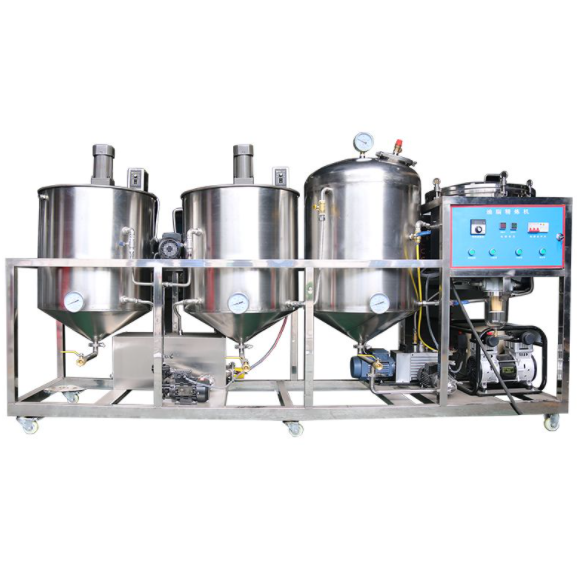- Automobiles & Motorcycles
- Beauty & Personal Care
- Business Services
- Chemicals
- Construction & Real Estate
- Consumer Electronics
- Electrical Equipment & Supplies
- Electronic Components & Supplies
- Energy
- Environment
- Excess Inventory
- Fashion Accessories
- Food & Beverage
- Furniture
- Gifts & Crafts
- Hardware
- Health & Medical
- Home & Garden
- Home Appliances
- Lights & Lighting
- Luggage, Bags & Cases
- Machinery
- Measurement & Analysis Instruments
- Mechanical Parts & Fabrication Services
- Minerals & Metallurgy
- Office & School Supplies
- Packaging & Printing
- Rubber & Plastics
- Security & Protection
- Service Equipment
- Shoes & Accessories
- Sports & Entertainment
- Telecommunications
- Textiles & Leather Products
- Timepieces, Jewelry, Eyewear
- Tools
- Toys & Hobbies
- Transportation
Maximizing Efficiency and Quality: Exploring Cutting-Edge Oil Refinery Equipment
In the dynamic world of oil refining, staying ahead of the curve is imperative. As the demand for energy continues to rise, oil refinery operators are constantly seeking innovative solutions to enhance their production processes. This article delves into the realm of oil refinery equipment, spotlighting the latest advancements that can redefine industry standards and contribute to remarkable efficiency and quality gains.
The Foundation of Oil Refinery: Equipment Overview
The intricate process of refining crude oil into valuable products demands a sophisticated set of equipment. From the initial separation of crude oil into various components to the final transformation into usable end products, every step relies on specialized machinery.
Distillation Towers: The Core of Separation
At the heart of every oil refinery are the towering distillation units. These colossal structures perform fractional distillation, a process that separates crude oil into its individual hydrocarbon components based on their boiling points. The resulting fractions, such as gasoline, diesel, and jet fuel, are then further processed to meet stringent quality standards.
Catalysts and Reactors: Driving Transformation
Catalytic cracking and hydroprocessing are pivotal conversion processes within refineries. Catalysts, like zeolites and metal oxides, accelerate chemical reactions, allowing heavy hydrocarbons to be broken down into lighter, more valuable products. Reactors, in turn, provide the controlled environment necessary for these transformations, optimizing yields and quality.
Heat Exchangers: Efficiency Amplifiers
Energy efficiency is a paramount concern in the refining industry. Heat exchangers play a pivotal role by facilitating the exchange of heat between various process streams. This not only conserves energy but also aids in maintaining optimal temperature conditions, ensuring seamless operations.
Emerging Technologies: Shaping the Future
The landscape of oil refinery equipment is rapidly evolving, with technological breakthroughs poised to revolutionize the industry. One such innovation is the implementation of nanotechnology in catalyst design. Nano-engineered catalysts offer superior efficiency, selectivity, and longevity, driving down operational costs and minimizing environmental impacts.
A Paradigm Shift: The Benefits of Modern Equipment
In an era characterized by sustainability and efficiency, investing in state-of-the-art oil refinery equipment yields numerous advantages.
Enhanced Productivity
Modern equipment is engineered for optimal performance, translating into higher production rates and increased output. Through precise control mechanisms, operators can fine-tune processes, maximizing yield and minimizing waste.
Quality Improvement
The stringent demands of the market necessitate the production of high-quality refined products. Advanced equipment allows for greater control over the refining process, resulting in products that meet or exceed industry standards.
Cost Efficiency
Efficiency and cost savings go hand in hand. New-generation equipment is designed with energy conservation in mind, leading to reduced energy consumption and, consequently, lower operational costs. Additionally, streamlined processes reduce maintenance requirements, further contributing to cost efficiency.
Environmental Responsibility
The oil refining industry's impact on the environment is a growing concern. Modern equipment integrates eco-friendly features, such as reduced emissions and resource conservation. This aligns with global sustainability goals and regulatory requirements.
Embracing the Future: A Call to Action
As the landscape of oil refinery equipment continues to evolve, embracing innovation is not an option; it's a necessity. Oil refinery operators must be proactive in adopting cutting-edge technologies that enhance efficiency, productivity, and sustainability. By investing in modern equipment, refineries can solidify their position as leaders in the industry and contribute to a greener and more productive future.
In conclusion, the world of oil refinery equipment is a dynamic and ever-evolving realm. From distillation towers to catalysts and emerging nanotechnologies, the industry is witnessing a paradigm shift toward greater efficiency, quality, and sustainability. By leveraging modern equipment, oil refineries can position themselves for success in an increasingly competitive and environmentally conscious world.
If you are interested in sending in a Guest Blogger Submission,welcome to write for us!





Comments
0